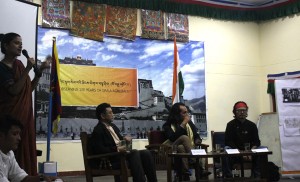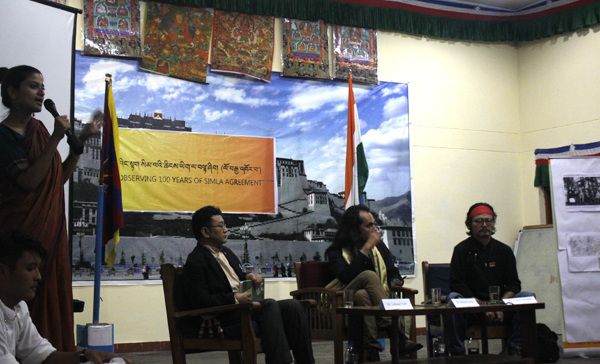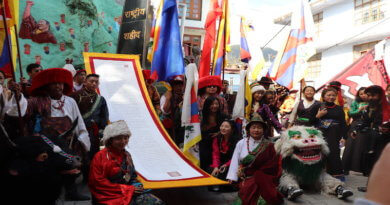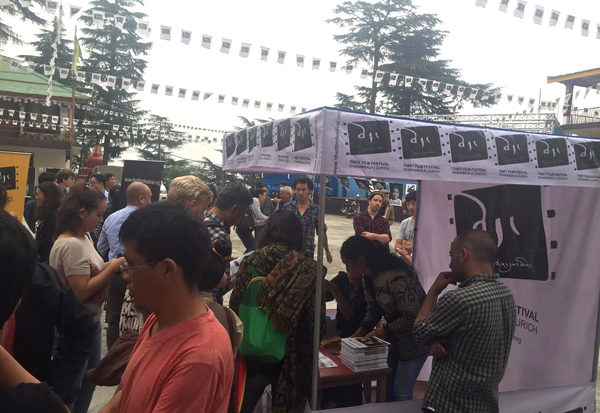SFT-India organizes public discussion to mark 100 years of Shimla Convention
DHARAMSALA, July 24: Shimla convention reminds the world that Tibet was once historically independent and that the Tibetan people have the right to self determination, said Professor Dibyesh Anand at a public discussion held on July 23 in Mcleod Ganj to mark 100 years since the convention was held between Tibet, China and British India.
The Shimla accord or convention held from 1913 to 1914 between Tibet, China and British India is a treaty concerning the demarcation of boundaries between the three parties. Though China refused to sign the final document, Tibet and British India signed the document between the two as the McMahon Line along India’s north-east. Even after 100 years with Tibet no longer functioning as a buffer zone between India and China, the document is a cause of disagreement between the two countries.
“The reason why Shimla convention is so important to the Tibetans today is because it reminds to the world that Tibet was once historically independent,” said Dr Dibyesh Anand, an associate professor of International Relations at the University of Westminster, London during the discussion.
“It recognizes that even China acknowledged Tibet as having treaty making capacity. Only an independent state will have that treaty making capacity.”
Dr Anand further said most governments, including the Indian government are unlikely to antagonize China over Tibet. He stressed that it is the responsibility of the people of the world to recognize that Tibetans exist as a people and as a nation.
“It is highly unlikely that the Indian government will challenge China over Tibet. In my analysis, hope doesn’t come from the Indian government perse….hope doesn’t come from western states because even western states are sold out, even countries like Norway which are economically powerful and have the capacity to antagonize China,” he said and added “But I do have hope from the people. It is the responsibility of the Indian people as well as people of the world to recognize that Tibetans exist as people, as a nation. In the end they have the right to self-determination. Whether Tibetans give up that self-determination in favour of autonomy or they struggle for independence is in the end to be decided by the Tibetans, not the Chinese….not the Indians….not the westerners. So the least we can do is remind ourselves, remind our governments that Tibetans like many others are a people whose rights matter.”
Tenzin Tsundue, a Tibetan writer-activist and Lobsang Yeshi, a member of Tibetan Parliament-in-exile were the other speakers who joined Dr Anand at the event organized by Students for a free Tibet-India, a Dharamsala-based Tibetan NGO.




